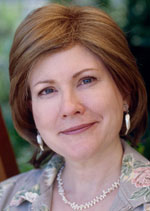A scary thing happened to me just before Christmas. Overnight, my right eye became oddly painful, as if a heavy, sharp pressure was building in it. I immediately called my ophthalmologist. Thanks to my quick action and her quick assessment, I left her office that same day with four prescriptions to treat shingles of the eye. It took a while, but thankfully the story had a happy ending.
The experience reminded me of how precious eyesight is and how important it is to get appropriate care for these amazingly complex organs, especially when we need more than new eyeglasses.
There are a few basics to consider when it comes to the eyes during different stages of life, said Dr. Charles Wilkinson, chairman of the department of ophthalmology at the Greater Baltimore Medical Center in Maryland.
Children usually are screened at birth and in the first year of life, especially for “lazy eyes,” in which eyes may be misaligned and whose early symptoms can be subtle, he said. Certain school personnel and pediatricians are usually the people who conduct these screenings, but parents should make sure they occur. Also, parents should be vigilant, especially when their children play sports. Eye protection must be used during these activities, he said.
“The number one cause of blindness in children was ice hockey injuries,” said Dr. Wilkinson, “and when the mask was mandated, the cause immediately disappeared.”
As we age, eyes age, too, and vision exams are important, especially if you experience changes in your ability to see or have one or more risk factors for specific eye diseases.
“Anyone with Type 2 diabetes should be seen by an ophthalmologist when they’re diagnosed,” said Dr. Wilkinson, adding that “if you are African-American, or if you have a family history of glaucoma, you should be screened. Glaucoma is especially silent. Also, macular degeneration is reaching epidemic proportions. The macula is the central retina, where we have our vision so we can read and drive. If you’re over 50, you need to be screened for early signs of macular degeneration.”
It is important, if you experience any eye-related discomfort, that you seek help.
“A lot of people are in denial with mild symptoms,” said Dr. Wilkinson. “I have to stress the value of screening.”
Who should you see? That depends. Ophthalmologists are medical or osteopathic doctors who have at least eight years of medical education and other training after college and who, among other things, diagnose and treat all diseases of the eye, perform surgery, and fit eyeglasses and contact lenses to correct vision.
Optometrists have attended optometry school. They perform eye exams and vision tests, prescribe and fit glasses and contact lenses, and can prescribe medications for certain eye diseases. Then there are opticians, who are trained to design, verify and fit eyeglass lenses and frames, contact lenses and other devices to correct eyesight.
What can we do on a daily basis to help our eyes weather the work we make them do?
“Don’t wear your contacts to bed,” said Dr. Wilkinson. “Wear safety glasses if you play tennis or a similar sport. Fatigue [while working on the computer] is very common. If your eyes feel tired, stop — and blink. A lot of people don’t blink when they use the computer. It sounds silly, but it can make a tremendous difference.”
All are good tips for you and me (and our eyes).




Share this story